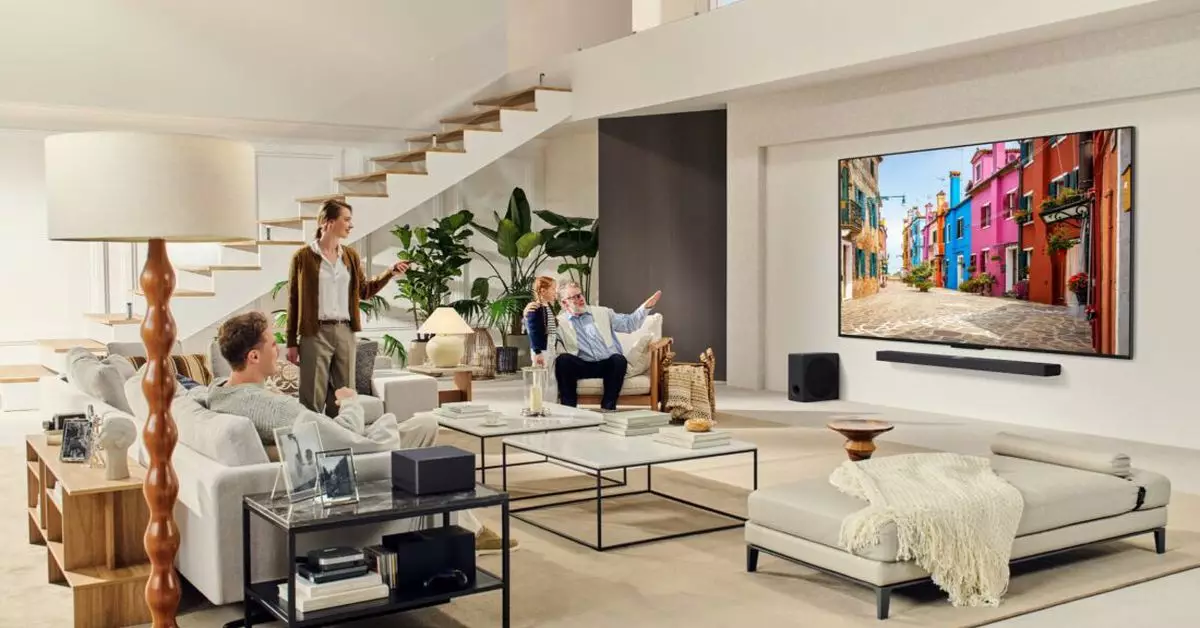The world of home entertainment is continually evolving, with significant advancements unveiled at major technology expos like CES. LG, a dominant player in the television market, has consistently been at the forefront of these changes. Their latest offerings, particularly with the Zero Connect Box and the QNED Evo Mini LED series, showcase the brand’s commitment to pushing technological boundaries while addressing consumer needs for convenience and performance. However, as ingenious as these developments may be, they also raise questions about the practicality of such innovations, especially in a consumer-friendly context.
First introduced alongside the M Series OLED in 2023, LG’s Zero Connect Box offers an intriguing proposition to consumers: streaming high-quality audio and video to the television without the clutter of excessive cables. This device has gained attention for its ability to transmit 4K video up to 144Hz, a feature that appeals to gamers and content creators alike. The idea that the only visible cable is the power cable changes the aesthetic of home entertainment setups, reducing the visual noise of tangled wires. However, while the Zero Connect Box appears to fulfill its mission effectively, one must scrutinize whether the reliance on wireless technology could lead to potential connectivity issues or delays that user experience may suffer in practical home environments.
Redefining Color: Dynamic QNED Color Solution
In an interesting pivot away from quantum dot technology, LG is now incorporating what it calls the “Dynamic QNED Color Solution.” The claim here is lofty; promoting a broader color gamut aimed at delivering pure colors that closely resemble real-life observations. While this sounds promising and aligns with the consumer demand for more lifelike visuals, it ultimately begs the question of whether such advancements can significantly impact everyday viewing experiences when compared to existing technologies. Furthermore, the clarification of what constitutes “realistic color” remains subjective. Are consumers prepared to pay a premium for this enhanced color experience, or will it merely be viewed as another marketing tactic?
The AI Revolution: A Double-Edged Sword
As we move toward a future where artificial intelligence permeates our daily lives, LG seems poised to integrate these advancements into their television products more thoroughly. The introduction of an AI button on the Magic Remote is a unique bold move, replacing traditional functions with AI-enhanced capabilities. This shift indicates a significant transition in how users will interact with their televisions, allowing for contextual recommendations and personalized viewing experiences. However, the practicality of this feature remains uncertain. Does the average consumer truly desire AI capabilities embedded in their remote? While personalization can streamline the viewing experience, it could also risk overwhelming users who prefer simple, straightforward entertainment options without the intricacies that AI commands.
LG promises remarkable enhancements in upscaling, HDR performance, and audio quality, including virtualized sound outputs that aim to elevate the home theater experience. Their assertion that AI can better isolate voices amidst ambient noise reflects an ongoing challenge in the television industry and could potentially address long-standing frustrations among viewers. However, as with all technological promises, the real test lies in execution. Can LG rise to the occasion and deliver on these ambitious claims? Or will consumers find themselves still yearning for solutions to audio clarity and visual fidelity?
While LG’s announcements at CES showcase compelling innovations that promise to redefine home entertainment, it remains crucial for consumers to approach these developments with tempered expectations. As history has shown, flashy features often mask underlying challenges—whether they be related to usability, reliability, or value. With no confirmed pricing or release date for the upcoming QNED Evo lineup, it is fair to question whether these technological advancements will be accompanied by price tags that reflect their worth or merely their marketability. The future of home entertainment is bright, but consumers must remain vigilant in evaluating how these technologies impact their viewing experiences in tangible ways.


Leave a Reply